School Business Plan Samples
-
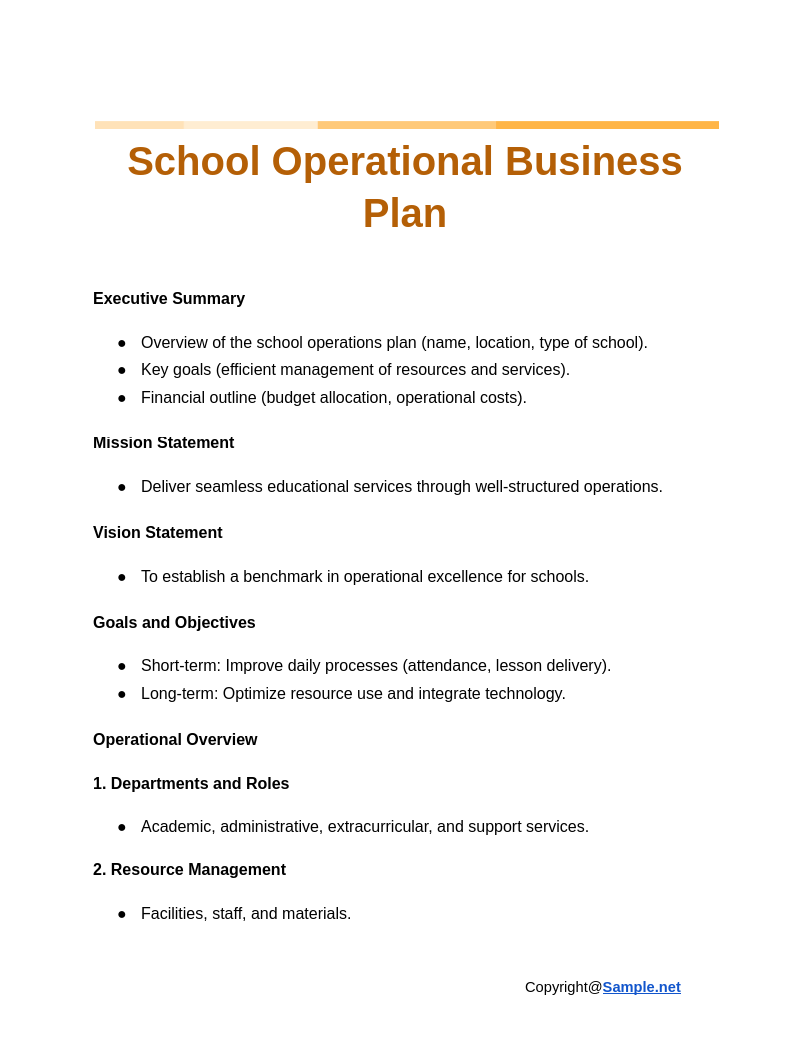
School Operational Business Plan
download now -
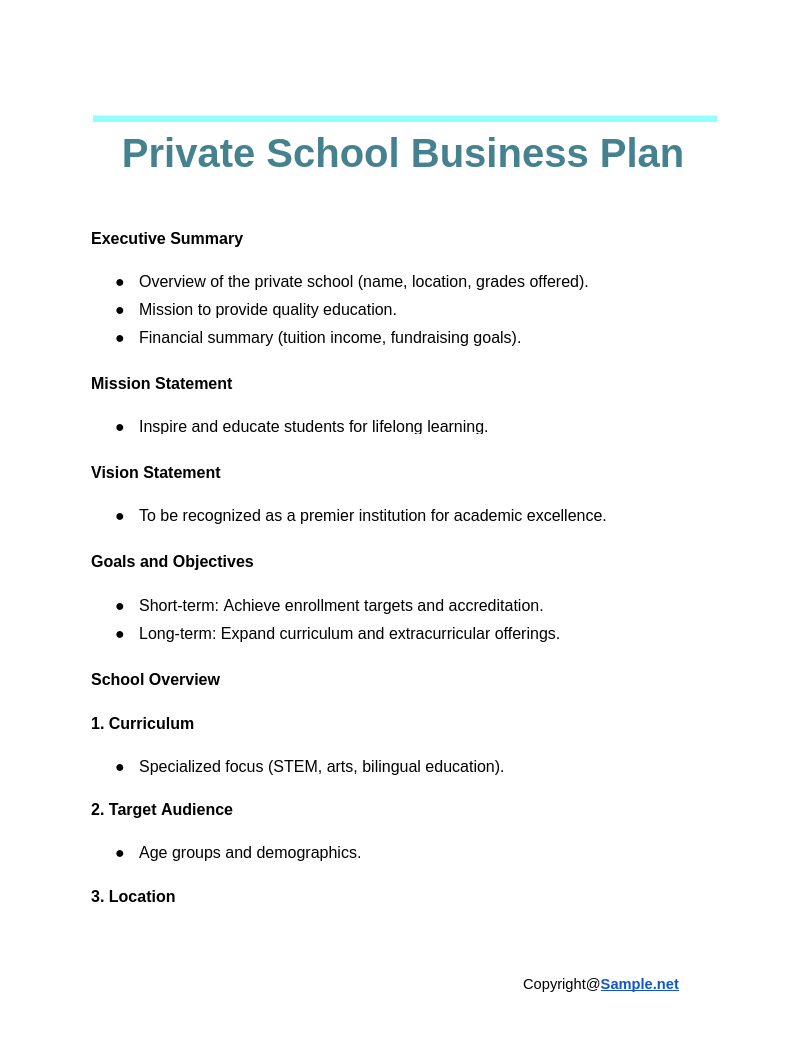
Private School Business Plan
download now -
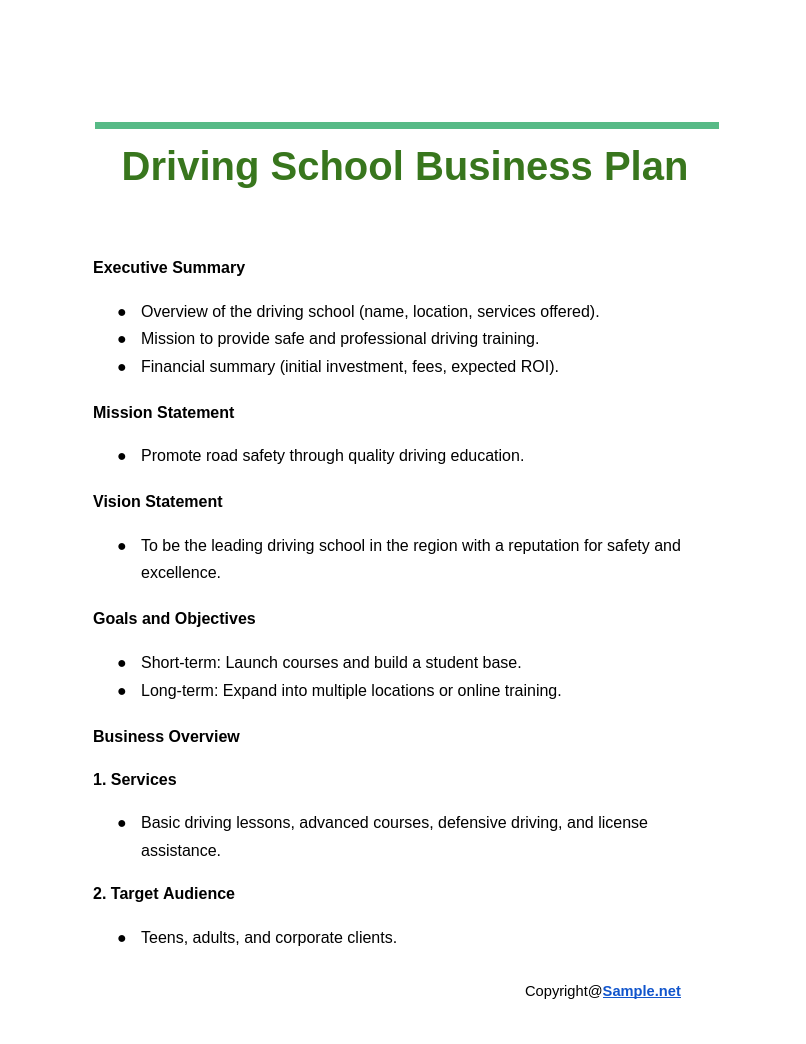
Driving School Business Plan
download now -
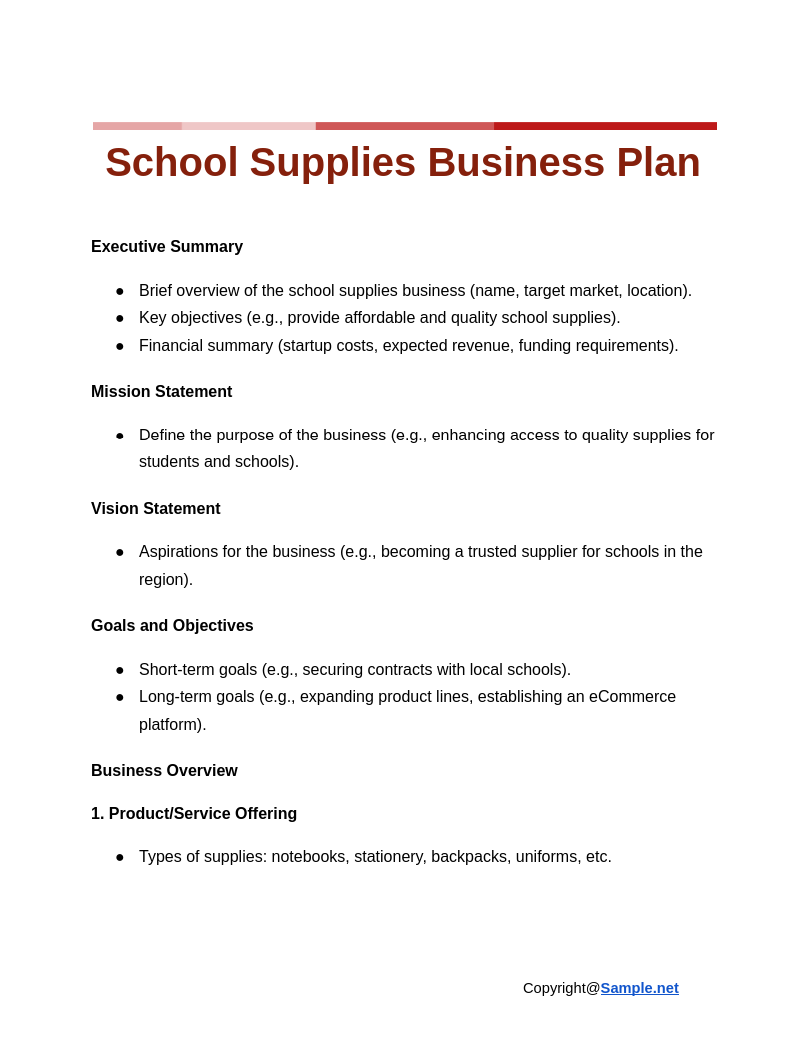
School Supplies Business Plan
download now -
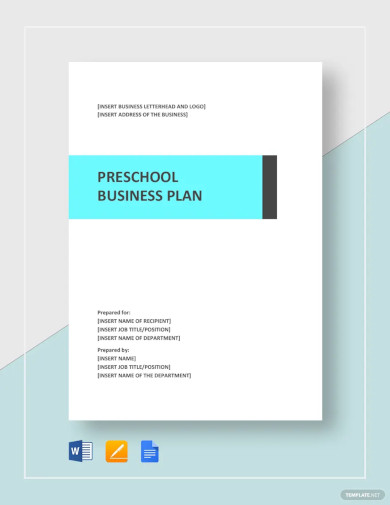
Preschool Business Plan Template
download now -
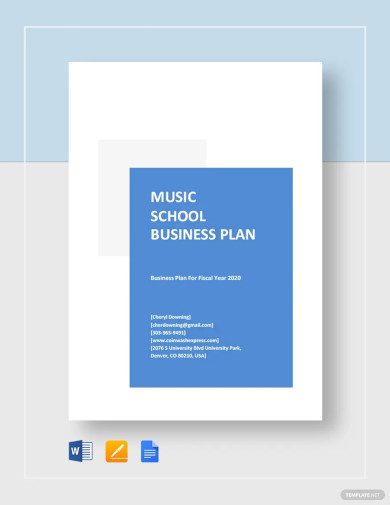
Music School Business Plan Template
download now -
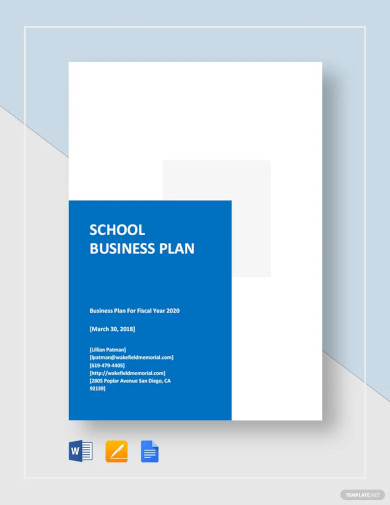
School Business Plan Template
download now -
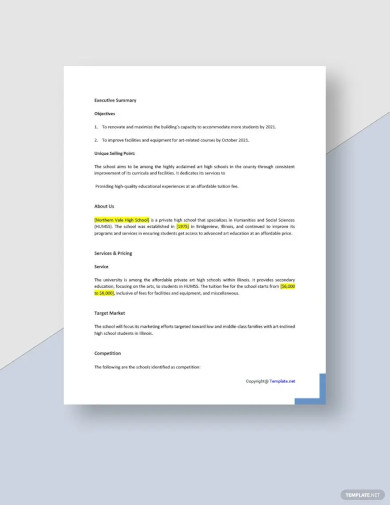
Free Basic School Business Plan Template
download now -
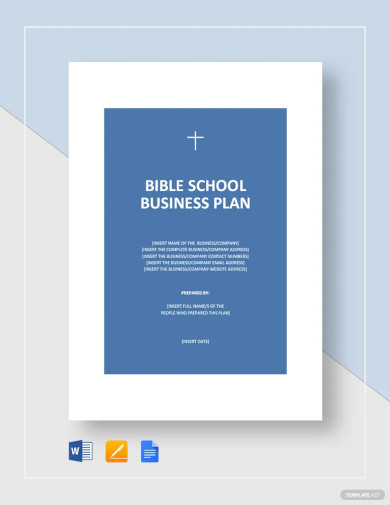
Bible School Business Plan Template
download now -
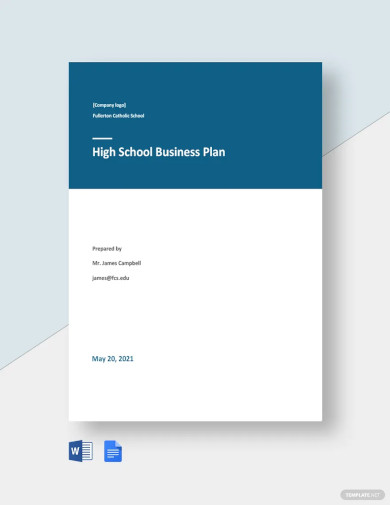
High School Business Plan Template
download now -
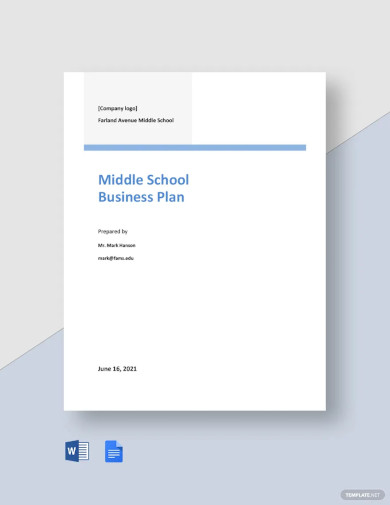
Middle School Business Plan Template
download now -
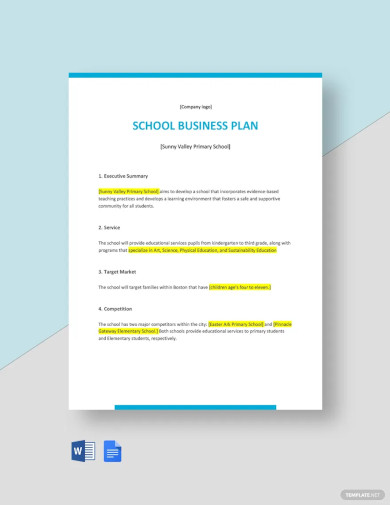
One Page School Business Plan Template
download now -
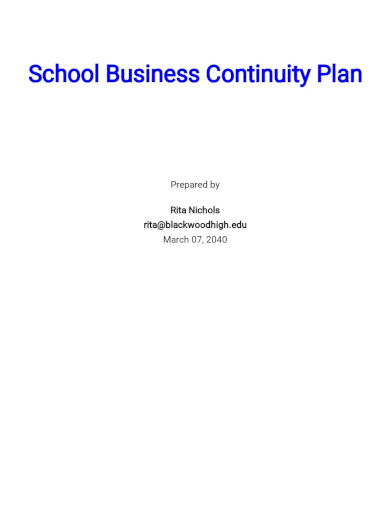
School Business Continuity Plan Template
download now -
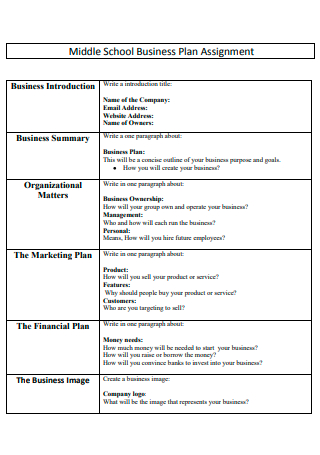
Middle School Business Plan Assignment
download now -

School Business Plan Template
download now -
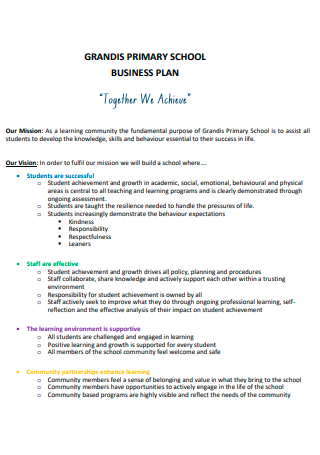
Sample Primary School Business Plan
download now -
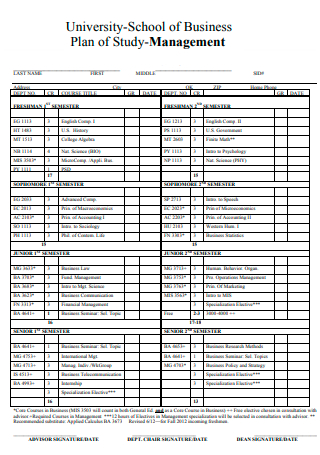
School Business Plan in PDF
download now -
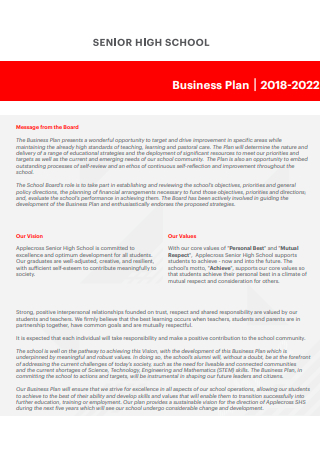
Senior High School Business Plan
download now -
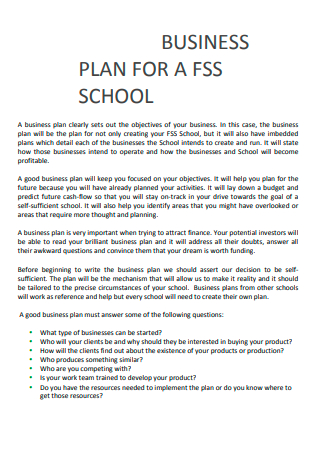
Non-Profit School Business Plan
download now -
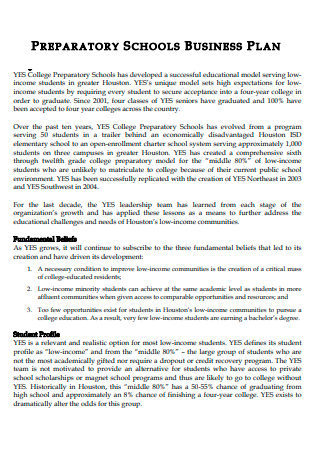
Sample Kindergarten School Business Plan
download now -
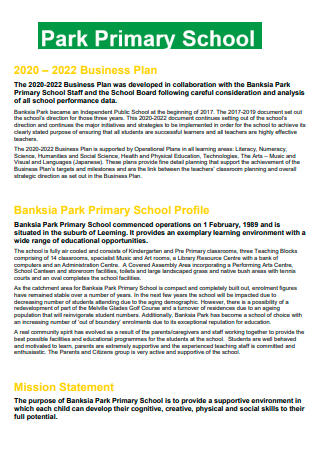
Park Primary School Business Plan
download now -
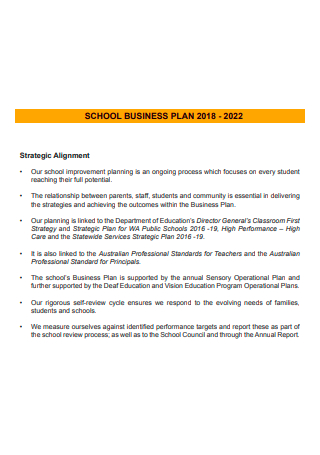
School Business Plan Executive Summary
download now -
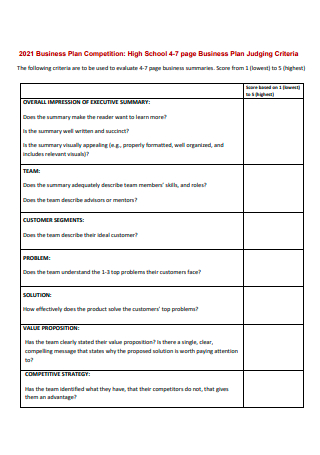
School Business Plan for Students
download now -
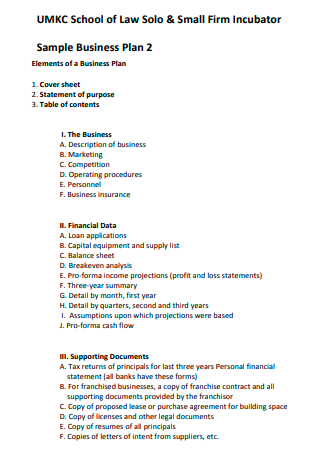
School Budget Business Plan
download now -
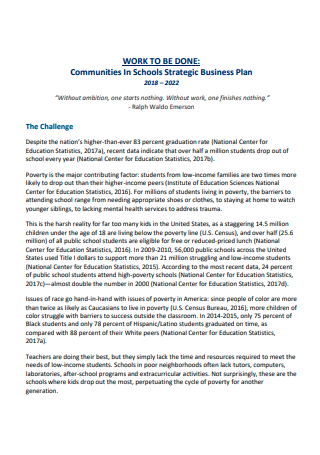
Sample School Funding Business Plan
download now -
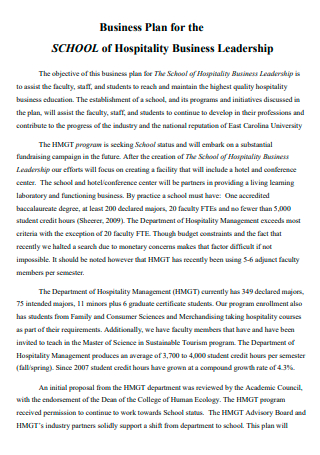
School Project Business Plan
download now -
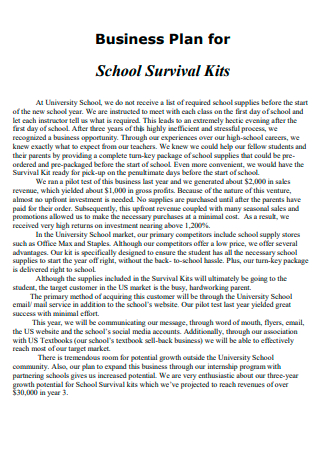
School Vocational Business Plan
download now -
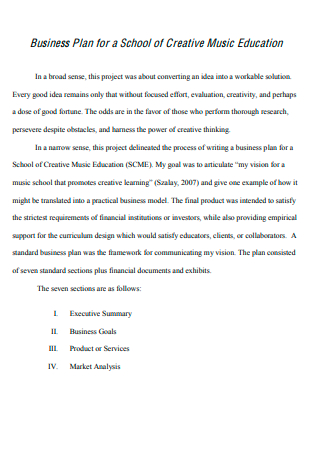
School of Creative Music Education Business Plan
download now -
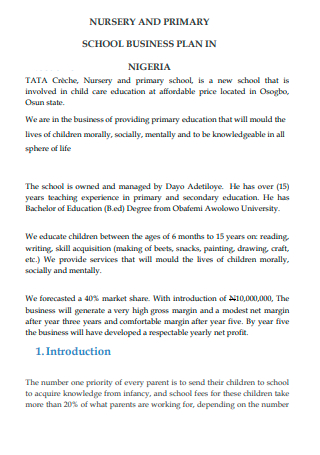
Nursery and Primary School Business Plan
download now -
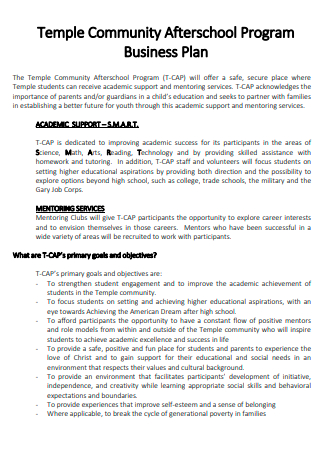
Temple Community After School Program Business Plan
download now -
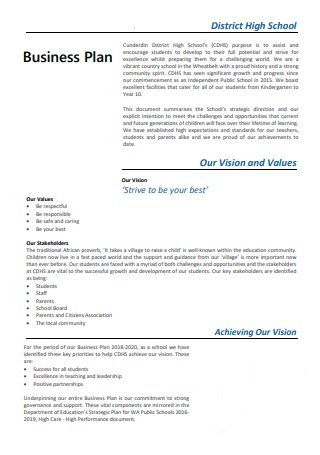
Sample Preschool Business Plan
download now -
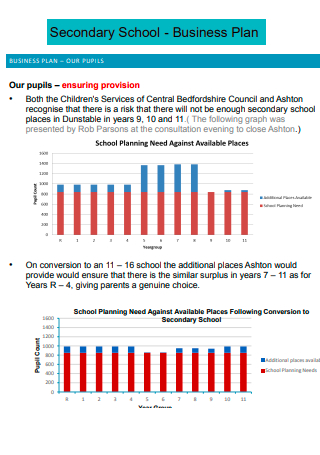
Secondary School Business Plan
download now -
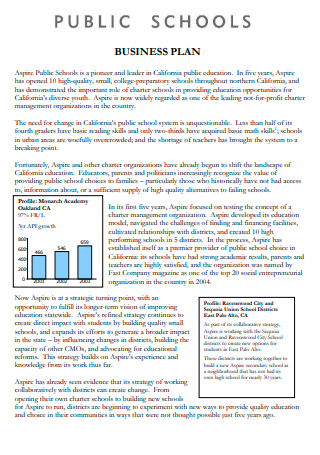
Public School Business Plan
download now -
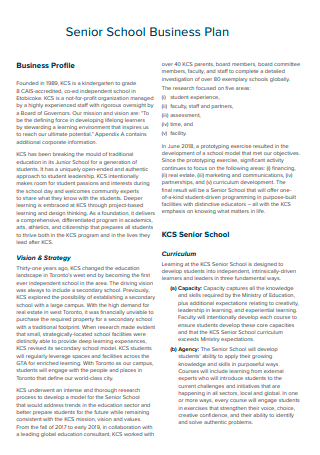
Sample Senior School Business Plan
download now -
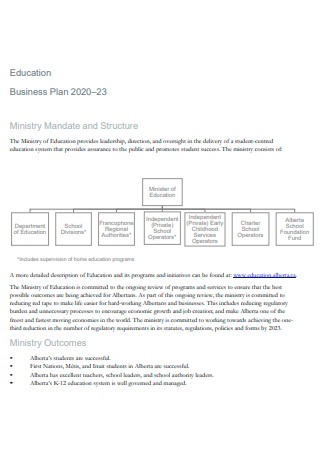
School Education Business Plan
download now -
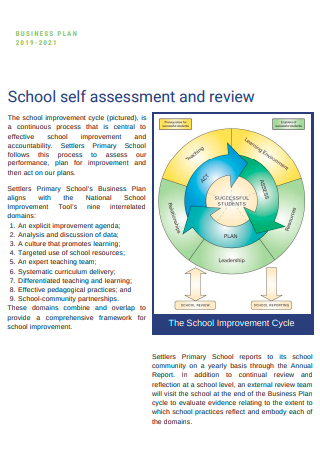
School Self Assessment and Review Business Plan
download now -
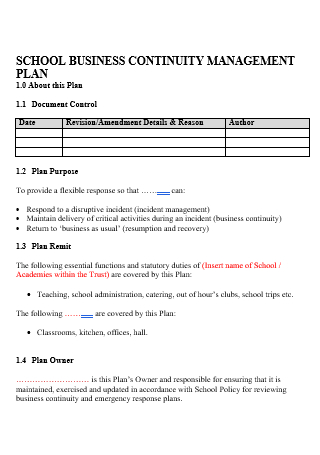
School Business Continuity Management Plan
download now -
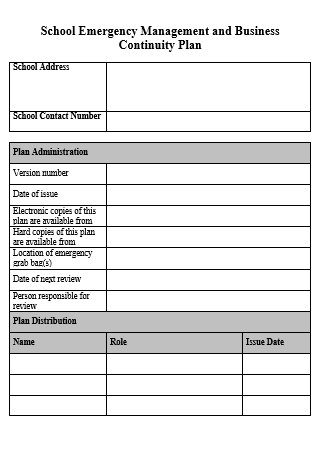
School Emergency Management and Business Continuity Plan
download now -
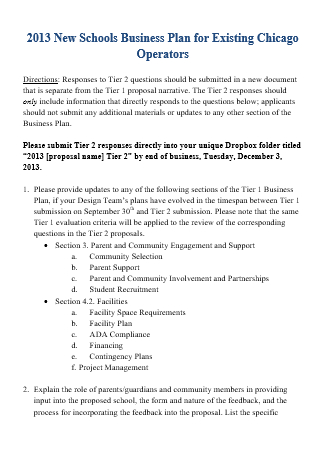
New School Business Plan
download now
FREE School Business Plan s to Download
School Business Plan Format
School Business Plan Samples
What is a School Business Plan?
Benefits of a School Business Plan
How to Create a School Business Plan
FAQs
Why are the Mission Statement and Vision Statement Important?
What is the Use of School Business Plan?
How long should a school business plan be?
What financial details should a school business plan include?
What role does branding play in a school business plan?
Can a school business plan be used for funding?
Can a school business plan be modified after implementation?
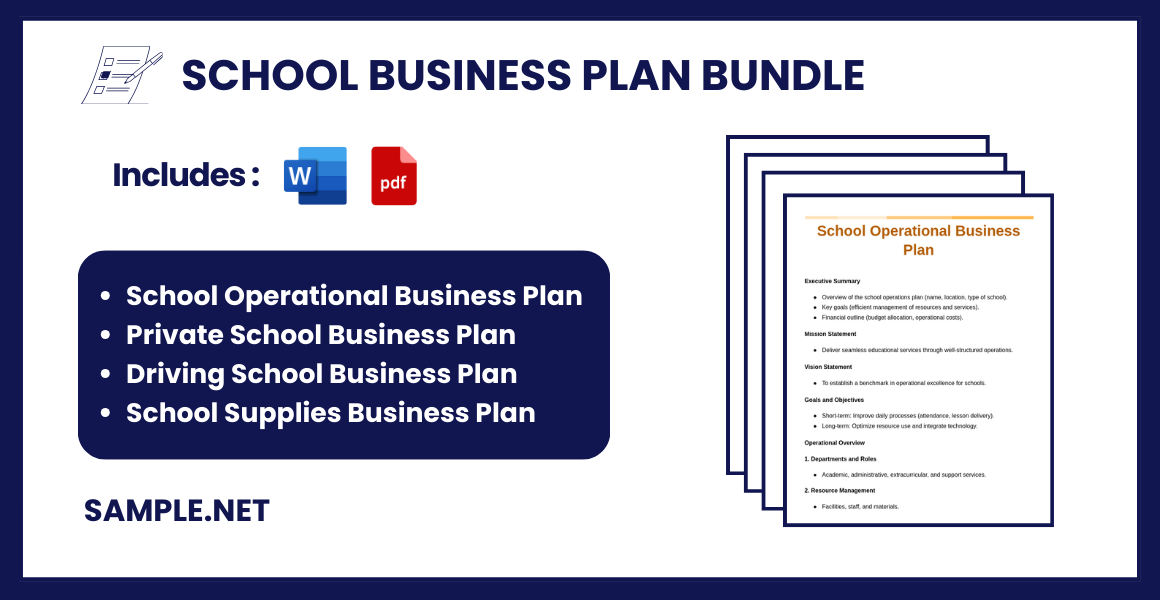
Download School Business Plan Bundle
School Business Plan Format
Executive Summary
- Brief description of the school (name, location, mission, and vision).
- Key objectives of the school (educational goals, community impact).
- Financial overview (funding requirements, expected profitability).
Mission Statement
- Define the core mission and values of the school.
- Highlight what sets the school apart (unique educational philosophy, specialized programs).
Vision Statement
- Long-term aspirations for the school (e.g., creating future leaders, contributing to community growth).
Goals and Objectives
- Short-term goals (e.g., enrollment targets, curriculum development).
- Long-term goals (e.g., school expansion, academic recognition).
School Overview
1. Type of School
- Private, public, charter, or specialty school (e.g., STEM-focused, arts-based).
2. Target Audience
- Grade levels (e.g., K-12, elementary).
- Demographics (local community, international students, underserved populations).
3. Location
- Description of the school’s location and benefits of the chosen area.
4. Legal Structure
- Ownership (individual, partnership, organization).
- Registration and licensing details.
Market Analysis
1. Industry Overview
- Trends in education (e.g., increasing demand for specialized education).
- Current market challenges and opportunities.
2. Target Market
- Define the ideal student demographic.
- Describe community needs and how the school will address them.
3. Competitor Analysis
- Identify competitors (local schools).
- Explain how your school differs (curriculum, extracurriculars, teaching methods).
Marketing and Admissions Plan
1. Branding
- Logo, tagline, and visual identity.
2. Advertising Channels
- Online marketing (website, social media).
- Traditional marketing (flyers, local events, radio ads).
3. Enrollment Process
- Application requirements, deadlines, and selection criteria.
4. Outreach
- Community engagement, partnerships with local organizations.
Operational Plan
1. Curriculum Development
- Overview of the subjects and teaching methodologies.
- Accreditation details.
2. Staffing Plan
- Number of teachers and administrative staff.
- Qualifications and roles.
3. Facility Requirements
- Classroom sizes, technology, and safety measures.
4. Daily Operations
- School calendar, hours of operation, and policies.
Financial Plan
1. Startup Costs
- Facility rental/purchase.
- Equipment, supplies, and initial staff salaries.
2. Revenue Streams
- Tuition fees, donations, grants, and sponsorships.
3. Budget
- Detailed income and expense projections for the first 3-5 years.
4. Break-Even Analysis
- Timeframe to achieve profitability.
5. Funding Requirements
- Amount of funding required and proposed use of funds.
6. Financial Risks
- Potential risks and mitigation strategies.
Governance and Leadership
1. Board of Directors
- List of members, roles, and expertise.
2. Management Team
- Principal, administrators, and department heads.
3. Advisory Board
- Educational experts, community leaders, and investors.
Appendices
- Detailed curriculum outline.
- Teacher and staff resumes.
- Facility blueprints or images.
- Supporting documents (licenses, market surveys, financial statements).
What is a School Business Plan?
A school business plan is a structured document that serves as a roadmap for the establishment, management, and growth of a school. It highlights the institution’s mission, operational strategies, financial goals, and plans for academic excellence. Typically, it includes sections such as the executive summary, market analysis, marketing strategy, operational plans, and financial projections. A well-crafted school business plan is not only a tool for securing funding but also ensures efficient school operations.You can also see more on Special Education Business Plan.
Benefits of a School Business Plan

A school business plan helps you to focus on handling your business. Writing a school business plan can make you have the necessary steps that you need in running your school. Whether it is a preschool business plan, private school business plan, training school business plan, or fashion design school business plan, fashion business plan what matters is that you make a plan that will make things easier for you. Business plans truly have benefits. Read the following and know some of them:
How to Create a School Business Plan
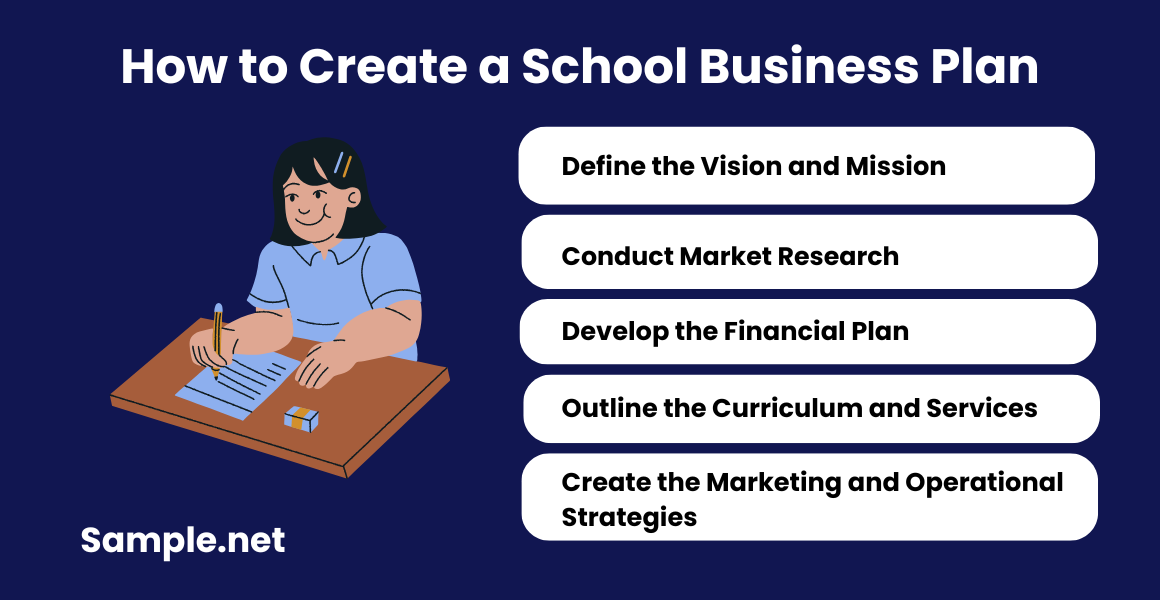
Step 1: Define the Vision and Mission
The first step in creating a school business plan is to define the school’s vision and mission clearly. Identify the educational philosophy, long-term objectives, and the core values that the school stands for. This provides a foundation for all subsequent planning. Ensure the mission resonates with the needs of the community and the aspirations of potential students and parents.
Step 2: Conduct Market Research
Next, gather data on the target market, including demographics, competition, and trends in the education sector. Assess the demand for educational services in the area and identify the unique needs of the target audience. Use this research to refine your offerings and position the school competitively in the market. You can also see more on School Action Plan.
Step 3: Develop the Financial Plan
After understanding the market, outline a comprehensive financial plan. Include startup costs, projected revenues, operational expenses, and funding requirements. Break down the budget into categories like salaries, infrastructure, and marketing. Ensure your financial projections are realistic and align with market research findings.
Step 4: Outline the Curriculum and Services
Design the academic curriculum and additional services the school will offer, such as extracurricular activities, special programs, or after-school care. Ensure the curriculum aligns with educational standards and caters to the needs of your target audience. This section showcases the school’s unique value proposition. You can also see more on School Program Proposal.
Step 5: Create the Marketing and Operational Strategies
Finally, formulate a marketing plan to attract students and stakeholders. Include strategies for branding, digital marketing, and community engagement. Concurrently, develop operational plans covering staffing, facilities management, and daily school activities. These strategies ensure smooth execution and achievement of the school’s goals.
A school business plan is an indispensable tool for planning, funding, and managing a school successfully. By defining clear objectives, conducting thorough research, and outlining actionable strategies, it ensures the institution’s growth and sustainability. Whether for a startup or an established school, this plan aligns all efforts with the mission and vision. A well-executed school business plan fosters academic excellence while ensuring financial stability and stakeholder satisfaction. You can also see more on Elementary School Action Plan.
FAQs
Why are the Mission Statement and Vision Statement Important?
The mission statement and the vision statement are important because they will tell the core values of the school. One can tell that a school is good through its mission and vision. Good goals and objectives mean that the school has good qualities which can attract any students to enroll in it.
What is the Use of School Business Plan?
A school business plan is used by the entrepreneur in running his or her business. It is a guide that can help to give direction to any school business. Without it, you will have nothing to show to investors which can lead to a good investment.
How long should a school business plan be?
A school business plan should be as detailed as necessary, usually between 15-30 pages, covering all critical aspects like market analysis, financial planning, and operational strategies. You can also see more on Educational Strategic Plan.
What financial details should a school business plan include?
It should include startup costs, operational budgets, revenue forecasts, and funding sources. Details like tuition fees, grants, or sponsorships are vital for financial planning.
What role does branding play in a school business plan?
Branding differentiates the school from competitors, attracting students and stakeholders. A strong brand reflects the school’s values, mission, and unique offerings, enhancing its market appeal. You can also see more on University Business Plan.
Can a school business plan be used for funding?
Yes, a comprehensive business plan is crucial for attracting investors, securing loans, and gaining support from stakeholders by showcasing the school’s potential and profitability.
Can a school business plan be modified after implementation?
Yes, it’s a dynamic document that should be updated regularly to reflect changes in market trends, financial conditions, or operational challenges. Regular reviews ensure its relevance and effectiveness. You can also see more on School Budget Plan.
